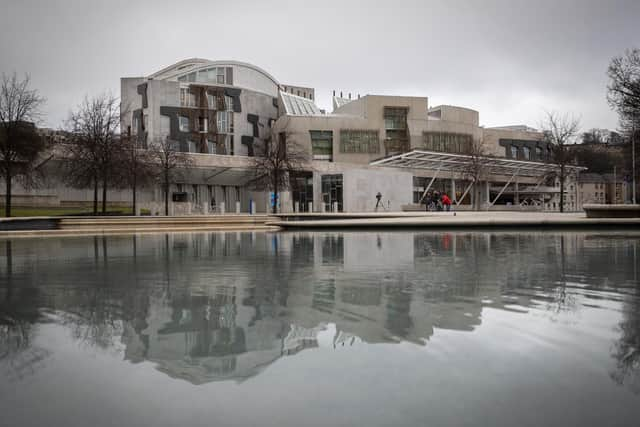Scottish Election 2021: MSPs to pledge allegiance to the Queen in Holyrood
The process, which will begin at 9am tomorrow, with Nicola Sturgeon the first to take an oath or make an affirmation, will take over three hours and is the first item of business in the new five-year session of the Parliament.
According to statute, members must pledge their allegiance to the Queen before they can take part in any other parliamentary business at Holyrood.
Advertisement
Hide AdAdvertisement
Hide AdAny MSP who refuses is unable to take part in any other proceedings and are not paid any salary or allowances until they have done so. If they don’t take it within two months of the day of their election, they cease to be an MSP.


Once Ms Sturgeon has been sworn in, the other party leaders will follow, and then the remaining MSPs in four groupings and in alphabetical order.
The proceedings will be run by outgoing Presiding Officer Ken Macintosh, who will stand down on Thursday afternoon when the election of his replacement will take place. Friday will see the election of the Parliament’s two deputy presiding officers.
It is a personal choice for MSPs as to whether they take the oath or the affirmation, although the effect of both is the same.
The oath states: “I, do swear that I will be faithful and bear true allegiance to Her Majesty Queen Elizabeth, Her Heirs and Successors, according to Law. So help me God”.
The affirmation reads: “I do solemnly, sincerely and truly declare and affirm that I will be faithful and bear true allegiance to Her Majesty Queen Elizabeth, Her Heirs and Successors, according to Law.”
Text for each MSP, of either the oath or affirmation and according to their choice, will be waiting on the seat they are shown to, and they will be asked to repeat the words after the officiating clerk. They may then repeat the oath or affirmation in a language other than English if they so choose.
The parliamentary authorities have also allowed for remote proceedings if an MSP is unable to be in the chamber in person.
A message from the Editor:Thank you for reading this article. We're more reliant on your support than ever as the shift in consumer habits brought about by Coronavirus impacts our advertisers.
If you haven't already, please consider supporting our trusted, fact-checked journalism by taking out a digital subscription.
Comments
Want to join the conversation? Please or to comment on this article.
